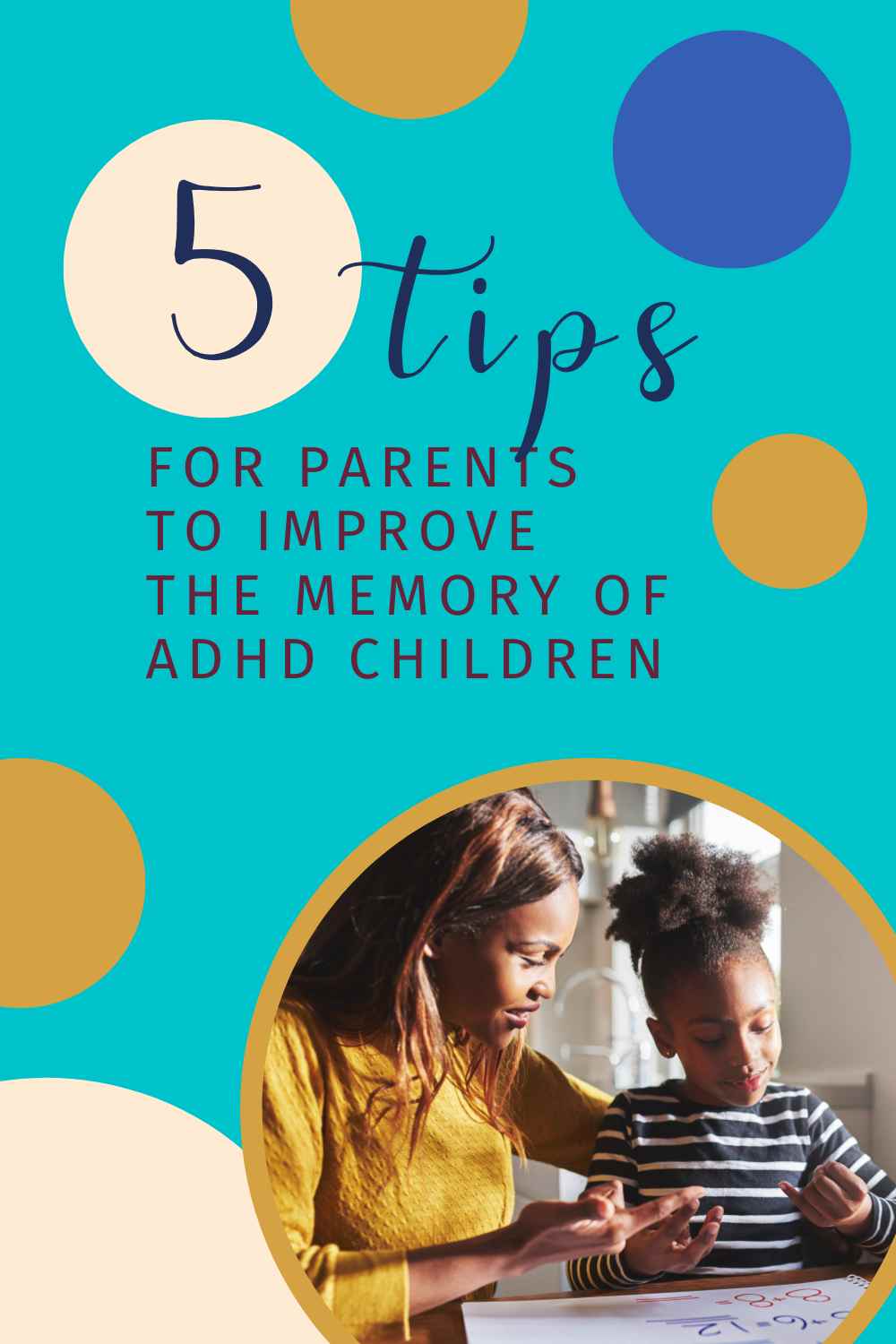ADHD Tips for Parents
This article covers five practical ADHD tips for parents to improve their child’s memory, including creating structured routines, implementing school strategies, using organizational tools, engaging in memory-boosting activities, and promoting brain-healthy habits.
Parenting a child with ADHD can be challenging, especially when it comes to improving their memory skills. Children with ADHD often struggle with working memory, which affects their ability to retain and process information. Implementing effective strategies can significantly enhance memory function in ADHD children, leading to improved academic performance and daily life skills.
Parents play a crucial role in supporting their child’s cognitive development. By incorporating specific techniques and creating a structured environment, they can help boost their child’s memory capabilities. From establishing routines to utilizing mnemonic devices, there are numerous approaches that can make a substantial difference.
Recent advancements in ADHD management have introduced innovative methods, including at-home listening therapy to improve memory, attention, and auditory processing. This type of therapy, combined with consistent routines and mnemonic devices, can create a comprehensive strategy for enhancing cognitive skills. By tailoring these methods to fit the child’s unique needs, parents can help bridge the gap between learning and recall, making daily tasks and academic challenges more manageable. Please note that this article provides information and should not be seen as professional advice; consult a medical professional.
A Quick Recap: This article discusses…
- Effective routines and strategies can significantly improve memory in children with ADHD
- Parental support and structured environments play a crucial role in enhancing cognitive skills
- Innovative techniques like listening therapy can complement traditional memory improvement methods

Establishing Effective Routines for ADHD Management
Structured routines help children with ADHD manage their symptoms and improve daily functioning. A well-designed schedule enhances organization, reduces stress, and promotes better time management.
Creating a Consistent Daily Schedule
Develop a predictable routine that covers all aspects of the child’s day. Wake-up and bedtime rituals should occur at the same time each day, even on weekends. Designate specific times for meals, homework, chores, and leisure activities.
Use visual aids like color-coded calendars or charts to display the schedule. This helps children understand what to expect and reduces anxiety about transitions. Break larger tasks into smaller, manageable steps.
Incorporate regular exercise into the daily routine. Physical activity can improve focus and reduce hyperactivity. Aim for at least 30 minutes of moderate exercise per day.
Implementing School-Focused Strategies
Establish a dedicated homework area free from distractions. Set a consistent time for schoolwork and stick to it. Use timers to help children stay on task and take scheduled breaks.
Create a homework checklist that outlines all assignments and due dates. Encourage the use of planners or digital apps to track long-term projects and exams.
Collaborate with teachers to ensure consistency between home and school routines. Regular communication helps identify areas where the child may need additional support or accommodations.
Utilizing Tools for Organization and Time Management
Introduce organizational systems that work for the child’s specific needs. This may include color-coded folders for different subjects, labeled storage bins, or digital organization apps.
Teach time management skills using visual aids like analog clocks or time-tracking apps. Break tasks into smaller chunks and use timers to help children understand how long activities take.
Implement reminder systems such as sticky notes, alarms, or smartphone notifications. These prompts help children remember important tasks and deadlines without constant parental reminders.
Encourage the use of checklists for daily routines and multi-step tasks. This supports executive function skills and promotes independence.
Strategies to Enhance Memory and Cognitive Skills
Parents can employ various techniques to boost their ADHD child’s memory and cognitive abilities. These strategies focus on engaging activities, positive reinforcement, and healthy habits to support brain function.
Memory-Boosting Activities and Techniques
Engaging in memory games can significantly improve a child’s recall abilities. Puzzles like Sudoku challenge working memory and concentration. Parents can introduce card matching games to enhance visual memory. Mnemonic devices serve as effective tools for remembering information. Acronyms and acrostics make complex concepts more digestible.
Repetition plays a crucial role in reinforcing learning. Encourage children to review information at regular intervals. Visual aids, such as charts or diagrams, help create lasting connections in the brain. Mind mapping allows kids to organize thoughts and see relationships between ideas.
Breaking tasks into smaller steps reduces cognitive load. This approach helps children focus on one aspect at a time, improving overall task completion. Teach kids to use checklists for multi-step activities, enhancing their ability to follow instructions.
Adopting Healthy Habits for Brain Function
A balanced diet rich in omega-3 fatty acids, antioxidants, and vitamins supports brain health. Include foods like fish, nuts, and berries in meals. Ensure children stay hydrated, as even mild dehydration can affect cognitive function.
Regular physical exercise boosts blood flow to the brain, enhancing memory and focus. Encourage daily activities like biking, swimming, or team sports. Aim for at least 60 minutes of physical activity per day.
Adequate sleep is crucial for memory consolidation. Establish a consistent bedtime routine to improve sleep quality. Limit screen time before bed, as blue light can disrupt sleep patterns. Create a calm sleeping environment to promote restful sleep.
Improving memory in children with ADHD requires consistent effort and a multifaceted approach. The strategies outlined in this article can help parents support their child’s cognitive development and daily functioning. Implementing structured routines, using visual aids, breaking tasks into smaller steps, and encouraging healthy habits are effective ways to boost memory skills. With patience, understanding, and the right tools, parents can empower their ADHD children to overcome memory challenges and thrive.

